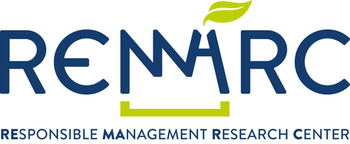CSR communication research today: Where do we stand? A new systematic review of theories and methods is out

Congratulations! A new paper, “Theories and methods in CSRC research: a systematic literature review” just out in Corporate Communications: An International Journal by Annamaria Tuan, Daniele Dalli and colleagues.
Abstract
Purpose – The authors have systematically reviewed 534 corporate social responsibility communication
(CSRC) papers, updating the current debate about the ontological and epistemological paradigms that
characterize the field, and providing evidence of the interactions between these paradigms and the related
methodological choices. The purpose of this paper is to provide theoretical and methodological implications
for future research in the CSRC research domain.
Design/methodology/approach – The authors used the Scopus database to search for titles, abstracts and
related keywords with two queries sets relating to corporate social responsibility (e.g. corporate ethical,
corporate environmental, social responsibility, corporate accountability) and CSRC (e.g. reporting, disclosure,
dialogue, sensemaking). The authors identified 534 empirical papers (2000–2016), which the authors coded
manually to identify the research methods and research designs (Creswell, 2013). The authors then developed
an ad hoc dictionary whose keywords relate to the three primary CSRC approaches (instrumental, normative
and constitutive). Using the software Linguistic Inquiry and Word Count, the authors undertook an
automated content analysis in order to measure these approaches’ relative popularity and compare the
methods employed in empirical research.
Findings – The authors found that the instrumental approach, which belongs to the functionalist
paradigm, dominates the CSRC literature with its relative weight being constant over time. The normative
approach also belongs to the functionalist paradigm, but plays a minor yet enduring role. The constitutive
approach belongs to the interpretive paradigm and grew slightly over time, but still remains largely beyond
the instrumental approach. In the instrumental approach, many papers report on descriptive empirical
analyses. In the constitutive approach, theory-method relationships are in line with the various
paradigmatic traits, while the normative approach presents critical issues. Regarding methodology,
according to the findings, the literature review underlines three major limitations that characterize the
existing empirical evidence and provides avenues for future research. While multi-paradigmatic research is
promoted in the CRSC literature (Crane and Glozer, 2016; Morsing, 2017; Schoeneborn and Trittin, 2013), the
authors found no empirical evidence.
Originality/value – This is the first paper to systematically review empirical research in the CSRC field and
is also the first to address the relationship between research paradigms, theoretical approaches, and methods.
Further, the authors suggest a novel way to develop systematic reviews (i.e. via quantitative, automated
content analysis), which can now also be applied in other literature streams and in other contexts.
Keywords Corporate social responsibility communication, CSR, Paradigms, Automated text analysis, LIWC



